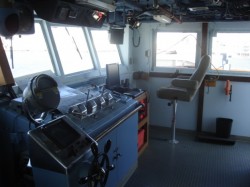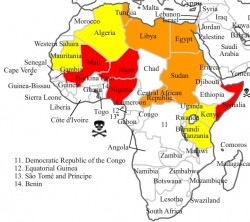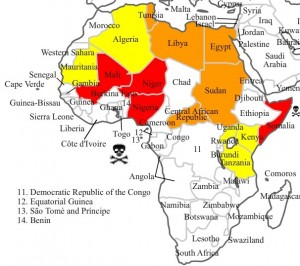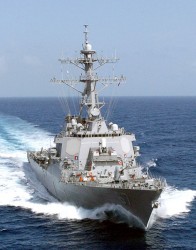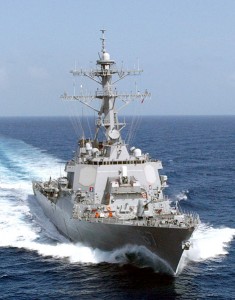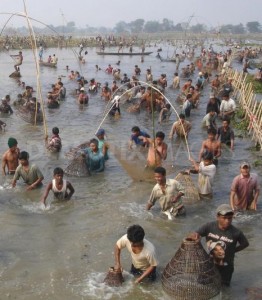By Claude Berube
The old adage “a picture is worth a thousand words” is imprecise. More accurately, a picture is similar to an inkblot in a Rorschach test in which viewers interpret each image differently. So it is with the former private security firm Blackwater. The recent publication of “Civilian Warriors: The Inside Story of Blackwater and the Unsung Heroes of the War on Terror” by the founder of Blackwater, Erik Prince, provides another view of that picture. Blackwater came to worldwide attention with the 2004 tragedy at the Fallujah bridge, when four employees were murdered and publicly mutilated demonstrating the immediate power of the internet. Then came the media scrutiny, the congressional investigations, and civil court action. Prince’s book is an important addition to the body of work on PSCs in Iraq but, for the purposes of CIMSEC readers, there is a maritime aspect to the story which unfortunately receives scant mention in the book.
A former Navy SEAL, Prince founded Blackwater in Moyock, North Carolina as a training facility for military and law enforcement officers with numerous shooting ranges where some 1.5 million rounds were expended every month. One of his first contracts with the Navy was worth $7 million and trained one thousand sailors a week for the first six months. By Prince’s calculation, Blackwater eventually trained approximately 70,000 sailors. As Blackwater’s contracts expanded in Iraq and Afghanistan, Prince turned to the experts in the field and hired ex-Navy SEALs for protective details such as for Paul Bremer. Prince makes the point that Blackwater never lost a person whom they were responsible for protecting.
At its height in 2007, Blackwater had over twenty-five hundred employees deployed in nearly a dozen countries. But they weren’t simply providing protection to government officials or convoys. Blackwater also had an aviation component – Presidential Airways – which primarily provided logistics support. Presidential flew “more than 70,000 missions worldwide, transported 270,000 personnel, and delivered 50 million pounds of cargo and mail.”
Blackwater also sought to build a maritime component. Unfortunately, Prince’s book barely mentions this aspect to his company with only one paragraph in the entire book. As the threat of Somali piracy in the Gulf of Aden began to increase in 2007, shipping companies slowly recognized that there were insufficient naval assets but were still hesitant to employ private security teams. In this environment, Prince identified a business opportunity. “We created Blackwater Maritime Security Solutions,” he writes, “the centerpiece of which was the MCARTHUR, a 183-foot former National Oceanographic and Atmospheric Administration research vessel that we retrofitted to carry two Little Bird helicopters, three rigid-hull inflatable boats, and a few dozen Blackwater personnel.”
In 2007, a lengthier version of a paper I wrote for a Naval War College course was accepted by Orbis, the quarterly of the Foreign Policy Research Institute which the editor re-titled “Blackwaters for the Blue Waters: The Promise of Private Naval Companies.” Shortly after that article was published, I learned about the MCARTHUR. A few weeks later, I was invited to spend a day on the ship in Norfolk and a second day touring Blackwater’s facility in Norfolk. For the next year, the ship prepared for its intended mission. Tom (in some cases only first names will be used for this article) was hired by Blackwater as its Director of Maritime Operations to identify a ship, refit it, and get it to sea. The MCARTHUR was purchased for a reported $300,000 but it would take several million more to make her compliant with Coast Guard regulations as a US-flagged ship. Tom and Prince had considered flagging her under the Marshall Islands, a flag of convenience, but they elected to make it fully regulated by the United States at that time. “Without the cert[ifications],” Tom told me, “the ship is just a piece of steel. It’s like a pile of wood costing $5,000 but the house costs $1 million.” A major shortcoming of MCARTHUR was its speed. It could only make 12 or 13 knots – not enough to protect most ships transiting the Gulf of Aden. The decision also subjected them to the Jones Act requiring all U.S.-flagged ships to have U.S. citizens as crew in coastal waters, and allowed up to 25 percent of a foreign-born crew.
In the course of the next year, the number of pirate attacks necessitated a change by the shipping industry. At various maritime security conferences, the firms were adamantly opposed to the use of private armed security teams citing liability issues and the likelihood in the increase in violence. As one major shipping firm told me, “we’ll NEVER use armed guards.” Eventually the industry changed its position, including the firm which said “never.” To date, no ship with an armed security team has been taken by pirates. Several countries soon followed suit.
By January 2009, Blackwater was offering more than just security teams, like some other firms it offered an escort vessel.
————————————————————————————————————————-
Inauguration Day, 2009. The Beltway (I-495) around Washington was as devoid of cars as it was on September 11, 2001. Four hours later I arrived in Norfolk to meet with Tom at the pier where MCARTHUR was tied up. Having already written a few articles about private maritime security companies and interviewed several companies, I informed Blackwater that I was working on a book (the eventually co-edited “Maritime Private Security: Market Responses to Piracy, Terrorism and Waterborne Security Risks in the 21st Century” Routledge, 2012.) I requested access to the ship and an interview with Prince. Both were accepted with few conditions. I could ask the crew anything I wanted to, I could photograph anything, but I could not ask Prince about Iraq.
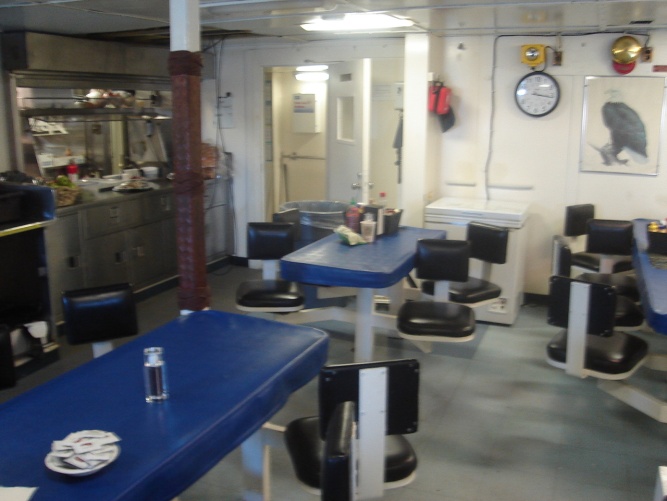
The first day was spent on MCARTHUR. She was different than when I had last seen her. The blue hull was gone and replaced by a flat black paint with large white letters along each side spelling “SECURITY”. I later learned from the captain of the ship, Joe, that that had been his suggestion to Prince. Since the ship would be providing escort duties in the Gulf of Aden it should seem more menacing and clearly state its purpose (although it is unknown how many Somali pirates can read SECURITY in English).
Tom and I had lunch in the mess deck. The crew wandered in and out, most eating quietly alone then returning quickly to their duties. There was one noticeable difference between this crew and a US Navy warship’s crew: age. Blackwater’s crew is significantly older, with the average around 40 years old. This was similar to my tour of Blackwater’s hanger for Presidential Airways in Moyock where everyone had gray or white hair. These were people with experience, most retired or having left the military. At the end of my table were Greg and Stormy, two of the ship’s mates. Greg was a graduate of one of the maritime academies. Stormy, one of the only women I saw on the ship, had been a Navy Boatswain’s Mate. After lunch I wandered into the galley to speak with the two stewards, one a former Marine cook and the other a former Navy culinary specialist (CS).
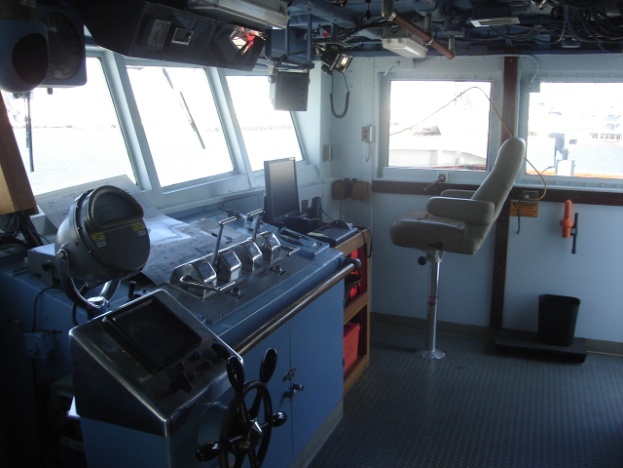
For the next three hours, I was on the bridge and throughout the ship speaking with the 50-year old captain of MCARTHUR, Joe, who had been at sea since the age of 15 experiencing the knockdown 70 foot waves between the Falklands and Georgia Islands in the South Atlantic. He talked about Sunday inspections, the lack of micromanagement from the firm, and the discipline of the crew (an assertion that would be challenged only weeks later when the ship pulled in to Jordan). His mission to the Gulf of Aden was clear: “we’re a bouncer on the water. If a boat challenges [the ship we’re protecting], we’re turn to let them know. We’re going to keep a force field around our clients.”
Joe selected the ship’s crew but the security contingent was the responsibility of Hugh, a 40-year-old former SEAL. “There isn’t anyone nobody knows or hasn’t worked with,” he tells me. All are former military, Coast Guard, or domestic law enforcement. The youngest is 30. Forty percent are military retirees. Hugh had already prepared for the mission by speaking with the entities in the region including with the naval attache to Nairobi, and the officers with CTF 150, CTF 151, and Operation ATALANTA. “We’re being transparent and we’re getting the word out there is another set of eyes and ears out there.” I asked him if MCARTHUR itself might be a target. “[The pirates] will take a run [at us] just because. We’ll be tested. Why wouldn’t we be.”
But Hugh, like Tom, Joe, and Prince recognized the larger issue. “We know we’re not the solution to the problem,” Hugh says of security at sea. “The problem is on shore.” Tom, a US Coast Guard-licensed boat captain and Vietnam-era veteran of the Air Force, adds, “we’re not out to shoot people; we’re out to scare them off.”
The remainder of day I wandered around the ship with Tom – crew berthing, the engine room, an area for the gym, and an infirmary in case the ship is used for humanitarian assistance missions. The ship, like the Presidential Airways hangar I had visited at the corporate headquarters in Moyock, was immaculate. It was cleaner than any ship I had been on – including cruise ships except for ocean liners like the Queen Mary II. Tom points out the RHIBs that Prince briefly mentions in the book. One person tells me they cost $300,000 a piece while another person says they were $475,000. In either case, Tom tells me they cost more than the ship itself before its refit.
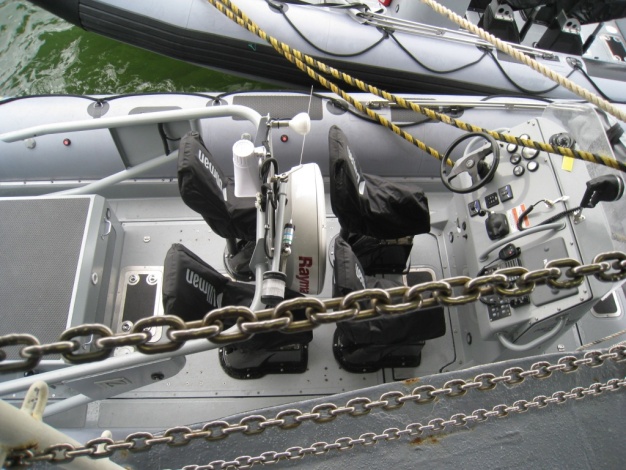
The refitted MCARTHUR had an accordion-style hangar able to house two Little Bird helicopters, the type Blackwater used in Iraq. They’re not on board the ship. I was told that to reduce the cost of the ship for escort duties, the Little Birds would not be aboard for the first missions. Instead, the ship would rely on commercially-available UAVs.
The following day I met Erik Prince in the wardroom of MCARTHUR. The transcript that follows is my interview with Prince that day.
BERUBE: Can you walk me through the process of when you decided to add a maritime security component to Blackwater? When you did it, why, and what you envisioned at that point?
PRINCE: Between the work we were doing with Azerbaijan, hired by DoD to do that, previous problems in the Straits of Malacca, to NSW operations in the Philippines, we wanted a platform that could be a maritime forward operating maritime base. Piracy patrol, training to be a target vessel for NSW-type units to go against, kind of a Swiss Army knife at sea. Hugh, when was that in Azerbaijan?
HUGH: We started out in 2004 was the original assessment. We’ve had the ship for a year and a half, two. We had the open house, I remember, in September 2007 and the boat just came out of the yards. We went through extensive refitting, overhaul.
BERUBE: If this proof of concept works, do you envision expanding this operation. Do you expect buying more, diversifying with regard to the type of boats that you’ll be looking at?
PRINCE: I’ll give you the example we’ve done on the aviation side. 2003, we bought a company that did specialty lifts for the U.S. military an arranged aircraft for a static line jumpmaster courses and free fall schools and those kind of things. It was Presidential Airways and we went from one aircraft to more than seventy now that we own and operate for the U.S. government around the world doing lift, medevac, that kind of stuff. We’d like to replicate that same model at sea. Multi-use, cost-effective platforms that can do training, medical support, homeland security training, capacity building, humanitarian support, counter-piracy operations, ISR support platform, all those kind of things. [Prince discusses Presidential Airways and its operations in his book Civilian Warriors.]
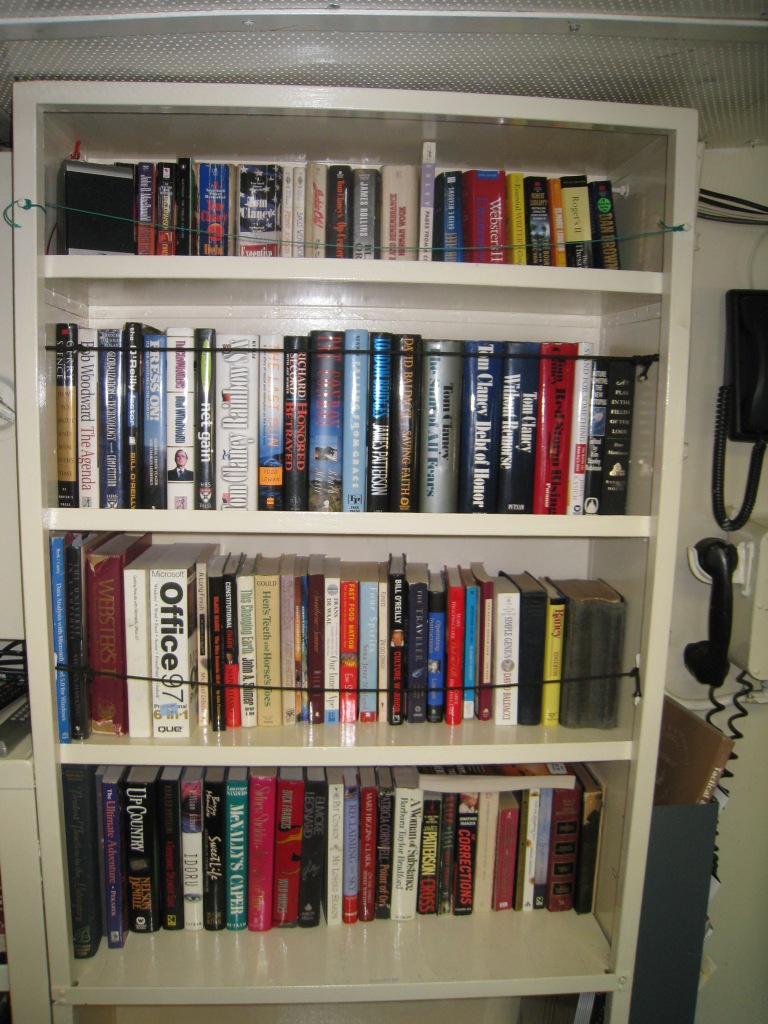
BERUBE: Do you look at projections for U.S. forces to see where there might be potential gaps industry could fill?
PRINCE: Sure. That’s why we’ve got the demand on airlift that we do because for the last twenty to thirty years the U.S. has bought heavily to fight that Fulda Gap kind of fight. C-130s, C-17s, C-5s, and they don’t have the short, ugly, slow cargo airplanes that fly into small airstrips. The same the Navy has facilitized with a lot of nuclear submarines, with carrier battle groups and all those kind of things, they’ve facilitized for a state on state navy fight and whether its piracy or tsunami response having a small ship that can operate independently, doesn’t have to be in a battle group. It can operate with a small footprint that doesn’t necessarily have to have the huge force protection requirements with a big target on its side that a U.S. Navy vessel does. You can go in and train doctors, train port security people to know how to interdict weapons of mass destruction or narcotics or weapons or whatever, it’s a small footprint ability to go do stuff. In North Africa, we operate some aircraft for airlift for medevac and logistics with the U.S. military and we operate that with a pilot, a copilot and a loadmaster who also happens to be a mechanic. It’s an infinitely smaller footprint than what a U.S. military C-130 crew would have. So same analogy. What do you think, Tom, this thing crews up with 14 or 15?
TOM: 12 crew, two stewards
BERUBE: Once the ship gets underway, can you explain to me how the command structure works? Once the ship gets underway, do you as the corporate executive – essentially commander-in-chief if you want to use that analogy – at what point do you let go, at what point do they request direction from the chain of command here?
PRINCE: On the aviation side we work directly for the U.S. government so there’s a clearly defined command structure. It’s always been different for the Navy that when you slip the ways and you get underway there’s a lot more authority and responsibility that resides with that ship’s captain because an airplane stays aloft for five hours, ship’s at sea for extended periods so they’ll be sent with clear guidance and clear right and left of what they can and they can’t do. We’re going over there to be defensive security escort business, escort merchant ship from a point in the water for the next 24 to 36 hours, escort them through the high threat area and then turn it over. The guys here understand a lot more the maritime law and the dos and don’ts. They’ll have a clearly defined use of force continuum for defensive actions to be taken against pirates. There’ll be contracts with the ship owners that we expect them or the ship’s masters that we expect them to do with course and speed and stay in the convoy and stay in the group. I’m not going to try to do that from twelve time zones away. Just like I give guidance, we have helicopters and aircraft flying in and guys doing work if they are Americans in trouble, the Good Samaritan rule applies. Now the Good Samaritan rule also has other meanings when it comes to maritime law, if a ship calls for help and asks for it, there are salvage laws and all kinds of things that can apply if we provide support services to someone who wasn’t contracted to do so. But they’re smart on those laws. They know we send proven professionals out there to do a job adapted to the market realities in truly ungoverned space and the seas – the U.S. Navy at 600 ships or 1,000 ships truly can’t control all the world’s oceans at a time. It doesn’t matter. There are truly ungoverned areas. We’ll at least go provide a security blanket around customers that hire us.
BERUBE: As I understand the law now, the Combatant Commanders in say Irag and Afghanistan have some control, some influence, there’s some relationship now with private security firms. Taking that now to the Gulf of Aden, is there any operational requirement to deal directly with CTF 150, [CTF] 151, Fifth Fleet – is there any obligation as a U.S. flagged boat to conduct information sharing or anything like that? Is there any reporting structure once you’re in theater?
[Here, at his request, Prince and I discuss the issue off the record for several minutes.]
HUGH: We’ve been meeting with a diverse group of shipping folks at all levels. There is tremendous confusion industry-wide about what to do with the pirates when they’re taken, rules of engagement, insurance issues…obviously this has been going on a long time, it’s in the limelight now.
BERUBE: Yesterday there was an inauguration, a new Administration. Do you see any potential political challenges, given the past few years of how some Democrats in Congress have responded to private security firms? Do you see that specifically as a challenge with your maritime operations?
PRINCE: First, I think most of the criticism of private security, they’re not so much focused on private security, they’re focused on opposition to the Iraq War and its conduct, how it was executed. On the maritime side, it’s global ship owners, shipping industry that would be hiring us to assist them over there so the U.S. government, of course they get to vote, but it’s not a government contract. It’s a non-defense service that we’re providing.
BERUBE: So long as you stay business-to-business rather than with potential government contracts, you’re more immune to that criticism?
PRINCE: Yeah, but whether it’s Darfur, whether it’s piracy, whether it’s a response to some disaster, there are needs. There’s a hue and cry for the government to do some. As we have in the past, as we will in the future, we will provide a cost-effective means to respond to get things done. It’s not the total solution. The MCARTHUR being in the Gulf of Aden will not solve piracy but it will at least assure the clients that will hire us that their boats will not be taken.
BERUBE: Do you envision any potential circumstances or political challenges where you would say, “all right, let’s switch the flag, we’ll continue to have U.S. citizens aboard…”
PRINCE: Anytime there’s American citizens involved, all the U.S. laws follow after. As long as I’m an American citizen, that’s not a realistic option. That being said, the U.S. can make it so difficult that no American citizen wants to be in this business so the more cries there are to hammer on this industry, it can drive other folks out of this industry on the American side and the U.S. government will be left with British, South Africa, or any tax-haven registered companies and it’s not the transparency and the accountability or the standards that they want to operate with. Look at the big security contracts on the ground in Iraq or Afghanistan. There’ s a lot of presence of non-American companies that don’t have nearly the roots, the U.S. government doesn’t have the reach, so that’s a line the Administration’s going to have to walk.
BERUBE: Did you have any lessons learned from your land-based operations that you’re carrying over to your maritime operations?
PRINCE: Cameras. I actually got asked that question by numerous folks, “what’s your experience in this?” Well, really the tactics, techniques, the procedures, the training. You take the dirt out from underneath of it and you put water and it’s really the same thing. The layered defense, the defense in depth concept, all of that that we’re doing in various places doing security applies to this in theory and then putting against that the experience of the guys we’ve talked about before, that level of maturity, the age of the guys and you plug that into the program and it doesn’t matter if you’re on land or on sea.
BERUBE: What about lessons learned from a public relations standpoint?
PRINCE: We’re going to be out in front of it this time. From the public relations standpoint for the work in Iraq, the State Department bars us from talking to the media. That’s why an unhealthy head of nonsense and total misperceptions existed by us because by contract we’re not allowed. In this case, there’s no U.S. government involvement. We can talk and embed the media as much as we want, as much as we deem appropriate. Sit down with you, talking with major news magazines that want to ride along and see what it’s like out there and we’ll show them what it’s like.
BERUBE: So it’s going to be complete transparency, without violations of OPSEC?
PRINCE: Yeah, but we’re not doing anything Secret Squirrel out there. We’re escorting boats. Now if we get to the negotiation side we’re assisting insurance companies with that kind of work, obviously there’s mandated discretion because that kind of customer would demand that but that’s the next bridge to cross.
BERUBE: Some suggest that this is not the role of private entities and that it should be state navies or international coalitions. How do you respond to that?
PRINCE: Nature hates a vacuum. The U.S. government or state entities can’t be everywhere all the time and can’t provide all the protection so if there’s gaps, the federal government doesn’t protect shopping malls or schools or a lot of other entities. That’s generally filled by the private sector. If someone goes on travel to a safari to Africa and they get hurt, they maybe call the Embassy and the Embassy will give a medevac service to call, but that is done by the private sector. So when a U.S.-flagged vessel is in trouble on the high seas there’s not always going to be a U.S. Navy vessel that’s going to be available. I can’t imagine the size the Navy would have to be to have quick response time all over the surface of the ocean. The country was founded with significant input from private organizations. Even in the Marine’s hymn they talk about “from the Halls of Montezuma to the shores of Tripoli.” Even on that there overland expedition there were eight Marines and 250 contracted Greek [the operation led by Major William Eaton]. That was America’s first overseas expedition barring pirates. So privatizing trash collection or phone service is controversial. This can be controversial to some folks, especially if it involves guns or danger. We’ve kind of accepted that and moved on. Because nature hates a vacuum and gets filled.
BERUBE: Can you tell me about the culture you’ve tried to develop at Blackwater but more specifically with this maritime operations organization. Is this organization different than how you’ve built other segments of Blackwater. What do you look for in people that you’re taking on for this mission?
PRINCE: We hire can-do people. Folks that are going to figure out a way to get it done in the most fast, efficient, cost-effective manner. Flying an aircraft in a remote of Africa we don’t have a huge infrastructure to support them so they’ve got to figure out how they’re going to fix their airplane, what parts they’re going to need. They’re going to fix it. They’re going to make stuff happen. That’s the kind of folks that we expect to put to sea. The operators are certainly going to be SEAL or Coast Guard type of background.
BERUBE: If you don’t have enough individuals with U.S. military or law enforcement experience, would you consider as part of the operations side looking to British SAS or…
PRINCE: We’d love to do that. We’d do that right now but it becomes a compliance nightmare with the State Department. Even putting Filipino stewards on the ship or non-American guys to help out with the basic ship’s services that would make it much more cost-effective, but the State Department regulations make it a regulatory nightmare.
BERUBE: Is that different from land-based operations? Is it simply because it’s at sea?
PRINCE: If there’s anything happening with a gun or a small boat operation in a security environment and they can somehow witness that, that would be a transfer of military knowledge. Even a guy chipping paint next to a guy cleaning a gun.
BERUBE: Where do you see the growth of the maritime portion of this industry?
PRINCE: The Straits of Malacca have gotten better. The tsunami wiped out a number of pirate villages. I don’t think anything’s going to change in the Gulf of Aden unless nation states can go over land and put some kind of functioning government back together in Somalia. There’s lots of ungoverned places in Africa, even off the coast of Nigeria you’ve got security issues against the oil platforms. We’ll get out there and see what we can do on piracy issues. One of the areas we’d like to go after is fisheries enforcement. You have hundreds of countries around the world that don’t really have effective coast guards and navies. The economic exclusive zone goes out 200 miles. You have multinational fishing fleets that come out of Russia, China, Japan, Korea and they pillage. They take whatever fish they want and no one stops them. I think we can build a business model around enforcing a country’s fishing laws. We’d provide a boat like this. We’d take a fisheries officer or two from the host nation and we’d go out and enforce their laws and we’d get compensated by enforcing license fees and if there are repeat violators, you seize the boat. There’s impound fees to get the boat out. And we build a sustainable fisheries industry which will put locals to work. It’s their water for 200 miles.
BERUBE: But a lot of those are ungovernable lands like Somalia or they are failing states.
PRINCE: They don’t have to pay us. We get that from licensing fees. But the problem is the illegal fishermen, that’s where you need some level of uncorrupt level of governance to make that work. But we’re going to try.
BERUBE: Assuming you have large fishing vessels registered to countries like China or Russia, you might find some opposition to your proposal within the UN.
PRINCE: It might not be a state-sponsored activity. Russian organized crime, they flag some in some tax havens and they do their fishing, they sell it to the processor on the high seas. A lot of those ships are truly stateless as well. In terms of piracy or illegal fishing, I think by dollar volume there’s a lot more illegal fishing going on the world than there is piracy.
BERUBE: At what point do you foresee pursuing that option? Have you begun entering negotiations?
PRINCE: We floated the idea to Ambassadors and some folks. They’ll eventually think about it and their people.
At the conclusion of the interview, I asked him one more question: “can I go with the MCARTHUR?” Prince is surprised. “As crew or security?” he asks. “Neither,” I responded. “I want to be an embedded reporter for the first six weeks of the MCARTHUR’s escorts.” Prince pauses for a few moments, nods his head, then turns to Tom: “Can we get berthing for him?” Tom responds that they can provide something. “Okay,” Prince says, “Coordinate with Tom and we’ll see you in a few weeks.” The MCARTHUR will have an embedded reporter.
In the course of the next few days, I resigned my position as an adjunct faculty member and gained correspondent credentials from a newspaper, contacted offices in the region, and met with the shipping company Maersk in their Rosslyn, Virginia office. In addition to submitting articles, I planned on compiling a broader book about piracy to include the Navy (since I had served off Somalia a few years before) and the shipping industry itself. Maersk agreed to let me pay for a stateroom on a ship from Norfolk to Djibouti and then another on the return trip from somewhere in the region.
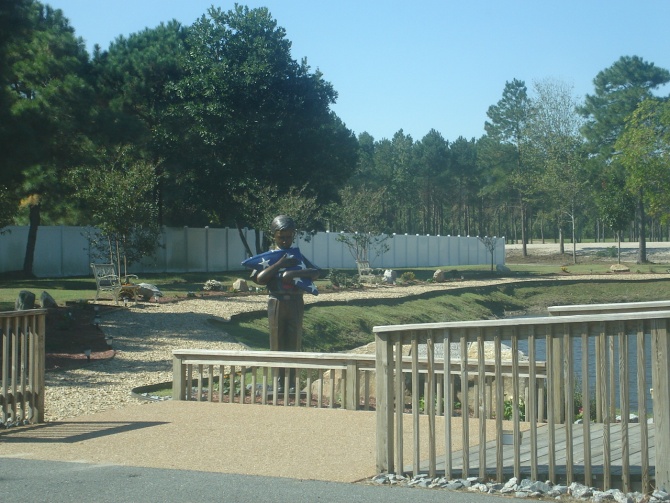
Afterward
The realities of the ship and its operations were more like the Rohrshach inkblot.
The morning before I was supposed to get underway from Norfolk, I received an email from Tom. The MCARTHUR made it across the Atlantic but it was in Aqaba, Jordan not Djibouti. In addition, it had no clients, despite my being told that shipping companies would commit once the ship was underway. After speaking with my editor, I decided not to make the trip. I cancelled the Maersk component as well. For the return voyage in April, Maersk had offered me one of three ships as options depending on my schedule and location – one of the three options was MAERSK ALABAMA.
The captain and crew also allegedly experienced other realities with three members of the crew filing lawsuits for a series of actions including verbal and physical abuse, racial harassment and unlawful imprisonment for speaking with a reporter without permission from the company.
The MCARTHUR never found a client. It was eventually sold and renamed EATON (likely after the same Barbary War-era Major William Eaton whom Prince referred to during the interview.) and later the Comoros-flagged MANDEEQ.
Prince currently lives in Abu Dhabi, UAE.
Claude Berube teaches naval history at the United States Naval Academy. He is the co-author of three non-fiction books and the author of The Aden Effect, his debut novel. You can follow him on Twitter at @cgberube. The views are his and not those of the Department of the Navy.

